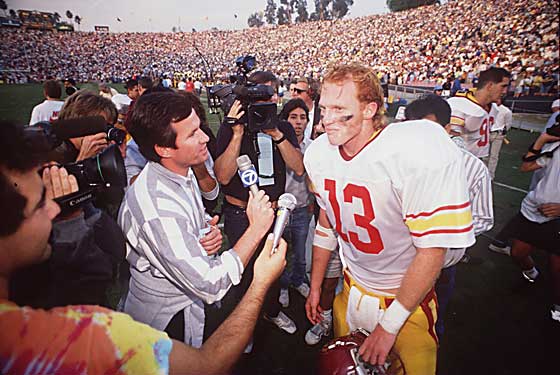Do You Know Why You Do What You Do?

By. Tom Glatt, Glatt Consulting
I recently watched a program on former USC and Oakland Raider quarterback Todd Marinovich. His is what you would call a sad tale, where drugs took an incredible toll on his life. This post isn’t about drugs, though. It’s about a statement he made regarding his goal to reach the NFL. In effect, he said once you attain everything you’ve worked so hard for in life, what else is there?
According to the program, Marinovich’s entire existence and upbringing was geared to reaching the NFL. Once he made it he found out something interesting about himself. While he wanted to make it to the NFL, he didn’t really want to play NFL football. After his first snap for the Raiders, he was done.
This situation parallels a particular problem with credit unions and the goals that are defined during the strategic planning process. Broad corporate goals too often tend to be task-specific, making the goals only temporarily relevant. Such goals lose their relevancy entirely once they are attained, of course, but when that happens credit unions are forced to ask, what else is there? Hardly a comforting question to address for any organization hoping to be relevant to consumers each and every day.
Let me provide a little more context for the situation I am describing. I’ve written about Southwest airlines before, and Walmart too. They are easy pickings for business how-to articles because they do a lot of things right (not everything, but a lot of things). One is that rather than define mountain-top expectations for themselves, they define a way of doing business and a specific value they hope to deliver consumers. It so happens that offering consumers consistently low prices, if not the lowest price, is the ideal for both organizations. If at any point either finds that they are failing to deliver to that expectation, they know they need goals to help them get back on track. Alternatively, if either finds they are meeting that expectation they know they need goals to help them maintain their strength and competitive advantage.
The critical point here is that they are always striving for an elusive but well-defined end: being the low price leader in their industry and markets. That end result isn’t a fixed point. It is a moving target that requires them to keep working. It’s the difference between Todd Marinovich having a goal to simply make the NFL versus becoming the best NFL quarterback of his generation. One forces you into a jarring assessment of everything you thought you knew about yourself once you reach it, the other keeps you consistently focused on relevant and helpful activities.
Yet another sports reference. I was listening to a sports radio host talking about the best NBA players. He said, and I have heard this from other sources, that Kobe Bryant is usually the first one to practice and the last one to leave. I believe the same was said about Michael Jordan, Larry Bird, and other basketball greats. They didn’t just want to be NBA players, they wanted to be the best ever – which is an elusive moving target requiring resetting expectations and goals based on the reality of their performance in nearly every game.
What does this all mean for credit unions? What is the lesson to learn? Drive your organization through clear goals that are based on a defined context or value proposition. Want to be the price leader for your market? Say so, figure out where you stand in that context, then create the goals necessary to help you get there. Or… if you find that in a price leader context you are already the market leader, create the goals necessary to maintain your competitive advantage.
One last example, this one credit union related. So many credit unions are grappling with the growth of mobile devices, and many have associated goals to “go mobile.” I’ve come across quite a few credit unions that made the mobile leap and have found themselves saying, “now what?” This is a clear indication that there was no purpose for a mobile strategy other than to have a mobile solution. In these cases, “now what?” is the right question to ask, but it is also an unfortunate indication of an unfocused institution.
As for Todd Marinovich, you can find some background on the program I mentioned here: http://espn.go.com/espn/espnfilms/
One thing they didn’t ask him, and that I would like to, is whether he ever thought about being the best NFL quarterback ever. I wonder if the subtle shift in perspective, from simply making the NFL to being one of the greats of the game, would have led him down a different path and perhaps to a different end result. Hard to say, but what is clear is that the goal he worked so hard to attain was ultimately devoid of meaning and, ultimately, a purpose.
Your credit union should have a purpose. Do you know what it is?





